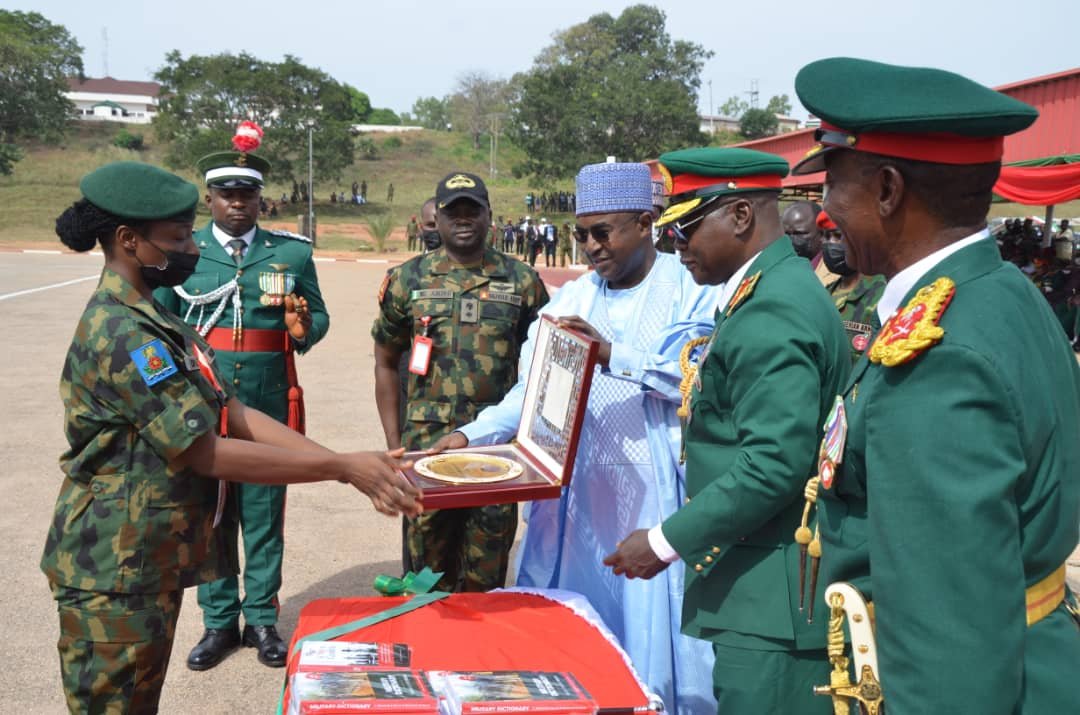NDLEA vs Nigerian Army Ranks: Key Differences

When comparing NDLEA ranks vs army ranks, it’s crucial to recognize the distinctions between the two organizations. The National Drug Law Enforcement Agency (NDLEA) is a paramilitary body focused on drug control, while the Nigerian Army is a full military force primarily tasked with national defence. Each organization follows a unique ranking system to structure its command and operations.
NDLEA Rank Structure
The NDLEA rank structure is tailored to support the agency’s specific role in enforcing drug laws and policies. The ranks in the NDLEA are divided into two main categories: commissioned officers and non-commissioned officers.
- Non-commissioned officers typically begin as Privates or Lance Corporals, with advancement based on education and experience.
- Commissioned officers in the NDLEA include ranks like Commander General of Narcotics, Deputy Commander, and Commander of Narcotics. These officers hold significant responsibility, for handling complex enforcement tasks.
The NDLEA officers ranking system follows a clear progression based on performance, qualifications, and tenure.
Promotions within the NDLEA depend on these factors, often alongside specialized training programs designed to equip officers with the skills necessary for law enforcement.
Nigerian Army Rank Structure
The Nigerian Army rank structure follows a traditional military hierarchy, focusing on discipline, combat readiness, and strategic command.
In the army, the ranks are divided into commissioned officers and non-commissioned officers (NCOs), with titles like Second Lieutenant, Captain, and General representing the progression within the officer ranks.
Non-commissioned ranks in the army include Corporal, Sergeant, and Warrant Officer, while officers progress from Second Lieutenant to General, each rank signifying increasing responsibility and command authority.
NDLEA vs Army Hierarchy
The NDLEA vs army hierarchy illustrates how these two organizations differ in their overall structures. The Nigerian Army has a more rigid, military-focused hierarchy designed for combat and national defence, whereas the NDLEA focuses on law enforcement within the framework of a paramilitary structure.
While both systems have commissioned and non-commissioned ranks, the primary difference lies in the NDLEA’s specific focus on drug law enforcement and narcotics control, leading to a distinct rank structure with an emphasis on law enforcement techniques rather than combat tactics.
Military Rank Comparison Nigeria
A military rank comparison in Nigeria reveals that while the Nigerian Army rank structure is strictly hierarchical with defined combat roles, the NDLEA rank structure includes roles tailored to narcotics law enforcement, such as Assistant Superintendent of Narcotics and Commander General of Narcotics.
These roles do not have direct counterparts in the Nigerian Army, highlighting the specialized nature of the NDLEA’s responsibilities.
Both organizations follow similar principles of rank progression based on educational qualifications and experience, but the NDLEA vs Nigerian Army Ranks comparison shows that the army’s structure is focused on military operations, while the NDLEA’s system supports its law enforcement mandate.
NDLEA Officers Ranking System
The NDLEA officers ranking system is designed to reward both academic qualifications and practical experience.
New recruits typically start at lower ranks, such as Private of Narcotics or Lance Corporal of Narcotics, and can progress through ranks to become Assistant Superintendent of Narcotics or even Commander General of Narcotics with further education, training, and performance.
Unlike the military’s focus on defence and combat readiness, the NDLEA places significant emphasis on education and specialized training to handle narcotics-related crimes and enforcement.
NDLEA vs Army Training Requirements
When examining NDLEA vs army training requirements, the army vs NDLEA training focuses on two different missions.
The Nigerian Army’s training involves combat, warfare tactics, physical fitness, and leadership, while the NDLEA provides specialized training in narcotics enforcement, drug control laws, and investigative procedures.
The NDLEA vs army training duration may also vary. Army recruits typically undergo longer training periods to prepare for combat and military operations, whereas NDLEA recruits focus more on law enforcement techniques, drug awareness, and legal matters.
Army vs NDLEA Salary Differences
While both organizations offer competitive salaries, there are notable army and NDLEA salary differences.
Officers in both forces are entitled to basic salaries, allowances for housing, travel, medical services, and pensions, but the figures may differ based on rank and responsibilities.
Higher-ranking officers in both the NDLEA vs Nigerian Army Ranks often receive additional perks, such as specialized allowances.
However, salaries in the Nigerian Army tend to be more uniform across the force due to its larger size and nationwide presence.
NDLEA Paramilitary Status
The NDLEA paramilitary status defines its operations as part military, part law enforcement. This status influences the NDLEA vs army hierarchy, as NDLEA officers are tasked with enforcing laws rather than engaging in military combat.
However, both the army and NDLEA share a similar command structure, with clear ranks and a hierarchical chain of command.
NDLEA vs Military Authority
The NDLEA vs military authority dynamic can be seen in how both organizations wield power. The Nigerian Army holds the authority to conduct national defence operations, including wartime activities, while the NDLEA focuses on combating drug trafficking and abuse through legal enforcement. Both agencies work under the command of the Nigerian government but with different focuses.
NDLEA vs Army Retirement Benefits
When it comes to NDLEA vs army retirement benefits, both organizations offer retirement packages, including pensions, medical allowances, and benefits based on the rank and length of service.
However, the army vs NDLEA retirement benefits may differ in terms of the amount of financial support offered and the overall package due to the differing nature of their roles and duties.
Wrap-Up: NDLEA Ranks vs Army Ranks
In comparing NDLEA ranks vs army ranks, we see distinct differences driven by each organization’s focus. While both structures share similarities, such as non-commissioned officer ranks and commissioned officer progression, the NDLEA’s rank structure is uniquely tailored to law enforcement in drug-related matters.
he army, in contrast, is focused on national defence and combat operations. Both systems offer career progression, salary benefits, and training programs, but their focus and operational demands set them apart.
Article updated 4 months ago ago. Content is written and modified by multiple authors.









